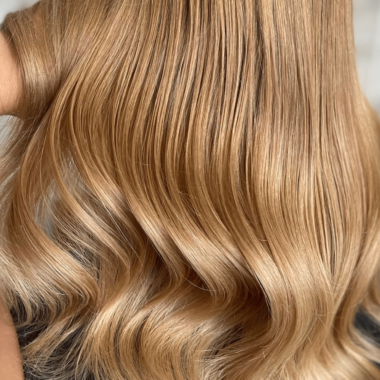With haircare trends constantly evolving, one thing has remained a timeless favorite: hair oils. From their roots in ancient Egypt, Greece, and India to today’s popular beauty routines like TikTok’s viral hair slugging, hair oils have consistently been a nourishing, transformative choice for maintaining healthy locks.
Although many people may have only discovered hair oils through recent social media buzz, their benefits and importance go far beyond today’s trends. With that in mind, we’ll be rolling out an ultimate guide to these natural gifts, exploring their advantages, different types, and top choices for maintaining healthy hair.
Understanding the Benefits of Hair Oils
Hair oils are super versatile; they can nourish, hydrate, and protect your hair all in one. While each type of oil has unique benefits based on its composition and properties, they are mostly known for boosting healthy hair growth. Packed with essential nutrients and vitamins, hair oils soak into your scalp, strengthening the roots and stimulating inactive follicles to encourage healthy growth.
In addition to promoting healthy hair growth, these oils can give your hair a beautiful, radiant shine. The nutrients in these oils coat each hair strand whenever you apply them, creating a smooth surface that reflects light better and creates a glossy look. Plus, they’re made from natural ingredients and nourish your hair without harsh chemicals.
Natural oils are also great for repairing and strengthening your hair. As they absorb into the follicles, they help undo the damage from heat, styling, or environmental stress, rebuilding your hair from the inside out for stronger, healthier strands. Oils can also create a protective layer around each strand, shielding it from future damage and reducing breakage.
Lastly, hair oils are a great way to tame frizz by giving your hair the hydration it needs, keeping each strand smooth and soft. Not only do they add moisture, but they also help lock it in, preventing your hair from drying out and cutting down on frizz.
Types of Hair Oils
When it comes to hair oils, there are so many options, each with its unique benefits. Let’s check out some popular types, what makes them stand out, and some top products.
Coconut Oil
Like most natural hair oils, coconut oil is known for penetrating the hair and delivering numerous benefits. It coats the hair shaft, locking in moisture and protecting against damage from heat and styling. Coconut hair can work for any hair type; however, experts recommend keeping it away from the scalp and hairline to avoid pore-clogging.
Also, since coconut oil reacts to temperature, it’s best to warm it up in your hands before applying it. Some top hair coconut oils include Oliology Coconut Hair Oil, Sky Organics Organic Coconut Oil, and Viva Naturals Organic Fractionated Coconut Oil.
Olive Oil
Olive oil has been a moisturizer since ancient times, favored by royalty in Greece and Rome. Today, it remains one of the most potent skincare and haircare ingredients. Highly regarded for its hydrating properties, olive oil is ideal for dry, brittle hair and is also great for fighting frizz.
OKAY 100% Pure Olive Oil, De La Cruz Pure Olive Oil, and Difeel Premium Natural Hair Oil are some of the numerous olive oil products to hydrate your hair and address frizz. However, if you have oily hair or struggle with dandruff, olive oil might be too heavy and could weigh down your hair.
Jojoba Oil
Jojoba oil is a liquid wax derived from the seeds of the jojoba plant. Initially used in skincare to reduce inflammation and prevent bacteria growth, jojoba oil has also been touted to help promote a healthy scalp. Research on the pharmaceutical uses of jojoba oil has shown that this oil can serve as a conditioner to soften hair and improve resistance to breakage.
Here are three highly-rated jojoba hair oils on Amazon: Garden of Life Jojoba Oil, Botanic Hearth Organic Jojoba Oil, and Kate Blanc Cosmetics Jojoba Oil.
Rosemary Oil
The popular rosemary oil is highly regarded for its hair-enhancing abilities. Extracted from the aromatic rosemary herb, this oil is an excellent choice for improving hair growth and overall health. With antioxidant, anti-inflammatory, and antimicrobial properties, rosemary oil supports nerve growth and improves circulation, promoting healthy hair growth.
Some popular rosemary oil products for hair care include the Kukka Rosemary Oil, Difeel Rosemary and Mint Hair Oil, and Handcraft Blends Rosemary Essential Oil. Despite its apparent benefits, applying a large quantity of rosemary oil can cause adverse reactions.
Argan Oil
Argan oil is a more lightweight option, making it perfect for folks with dry hair. Rich in linoleic and oleic acids, as well as vitamin E, argan oil protects the hair shaft from breakage while adding a healthy, glossy shine.
Most people maximize the benefits of argan oil by using it as the final step in styling. Some of the best argan oils for hair care include Cliganic Organic Argan Oil, AGADIR Argan Oil Hair Treatment, and Kate Blanc Cosmetics Moroccan Argan Oil.
Castor Oil
Castor oil has long been a traditional remedy to enhance hair strength, shine, and texture. Derived from the castor bean, this natural oil is known to boost hair growth up to five times the usual rate by increasing blood flow to the scalp. Its antibacterial and antifungal properties can also help reduce dandruff and soothe inflamed hair follicles.
A few castor hair oil products for hair care include Hair Chemist Castor Oil, Artnaturals Organic Rosemary Castor Hair Oil, and Sky Organics Organic Castor Oil.
Tea Tree Oil
As the name suggests, tea tree oil comes from tea tree leaves and is a known remedy for addressing conditions like athlete’s foot and acne. However, it’s also a popular ingredient in many hair care products, particularly shampoos.
With its anti-inflammatory, antifungal, and antiseptic properties, tea tree hair oil can help with dandruff, head lice, and hair loss. Some great tea tree hair oils include Botanic Hearth Tea Tree Hair Oil, Difeel Premium Natural Hair Oil, and Majestic Pure Tea Tree Hair Oil, all known for tackling various hair conditions.
Shea Butter Oil
Shea butter is another well-loved natural hair product known for its exceptional moisturizing properties. According to the National Center for Biotechnology Information, shea butter oil can help reduce scalp irritation and, when used on strands of hair, can act as an emollient to add and lock in moisture.
Additionally, shea butter can also help reduce frizz and relieve an itchy scalp. If you want to include shea butter oil into your hair care routine, opt for the SheaMoisture 100% Pure Shea Oil or Trader Joe’s Shea Butter & Coconut Oil Hair Serum.
Choosing the Right Hair Oil
Now that we’ve discussed the different types of hair oils and their benefits, you might be wondering how to pick the right one. There are a few things to consider before adding hair oil to your routine.
- Hair type
Different oils are better suited for different hair types, so it’s a good idea to figure out your hair type first and then choose an oil that fits your needs. For example, argan and coconut oils are packed with vitamins and fatty acids that make them great for moisturizing and softening dry hair.
On the other hand, the lightweight nature of jojoba oil can help balance oil production in oily hair without making it too greasy. If your hair is prone to frizz, castor oil or shea butter are excellent choices thanks to their hydrating properties.
- Hair porosity and thickness
Your hair’s porosity also significantly affects how well it absorbs and holds onto moisture. If your hair is less porous, it will struggle to absorb products; in this case, it’s best to use lightweight oils that can penetrate hair follicles easily. Folks with highly porous hair can go for heavier oils.
Similarly, you should also consider your hair thickness when selecting the right oil. As expected, fine hair works best with lightweight oils, while thicker locks better handle heavier oils like castor oil.
How to Use Hair Oils
How you apply hair oil can also affect how well it works. To maximize the benefits of hair oils, apply them as a pre-shampoo treatment for extra nourishment. While this may appear counterintuitive, using a natural oil before washing helps the hair stay stronger over time by limiting how much water it absorbs during the wash.
After washing, it’s a good idea to apply a small amount of lightweight oil on damp hair to enhance the shine and reduce tangling. This process fills in any gaps in the hair cuticles and seals in moisture as it dries. Oils can also serve as a shield to protect the hair from heat when styling, so always apply before heat styling.
Ultimately, natural hair oil products can really improve your hair’s condition. It all comes down to choosing the right one and how you use it in your hair care routine. Whether you want to lock in moisture or tame frizz, adding hair oils into your routine is necessary for achieving vibrant, healthy hair.





























